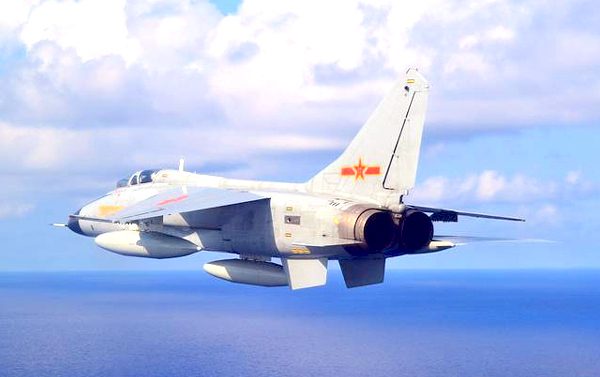Chinese jet made ‘unsafe’ intercept of American spy plane

WASHINGTON (Reuters): A Chinese fighter jet carried out an “unsafe” intercept of a U.S. spy plane on routine patrol on Tuesday in international airspace over the East China Sea, U.S. Pacific Command said.
The intercept involved two Chinese J-10 fighter planes and a U.S. Air Force RC-135 reconnaissance plane, it said in a statement.
“One of the intercepting Chinese jets had an unsafe excessive rate of closure on the RC-135 aircraft. Initial assessment is that this seems to be a case of improper airmanship, as no other provocative or unsafe maneuvers occurred,” Pacific Command said. Its statement did not say how close the Chinese fighter came to the U.S. plane.
“The Department of Defense is addressing the issue with China in appropriate diplomatic and military channels,” the statement said.
China’s foreign and defense ministries did not immediately respond to a request for comment.
In May, the Pentagon said two Chinese fighter jets flew within 50 feet of a U.S. EP-3 aircraft over the South China Sea.
The Pentagon determined that the May incident violated an agreement the two governments signed last year.
Earlier this week, Secretary of State John Kerry said the United States would consider any Chinese establishment of an air defense zone over the South China Sea to be a “provocative and destabilizing act.”
U.S. officials have expressed concern that an international court ruling expected in coming weeks on a case brought by the Philippines against China over its South China Sea claims could prompt Beijing to declare an air defense identification zone, or ADIZ, as it did over the East China Sea in 2013.
China has claimed most of the South China Sea, through which $5 trillion in shipborne trade passes every year. The Philippines, Vietnam, Malaysia, Taiwan and Brunei have overlapping claims.
Washington has accused Beijing of militarizing the South China Sea after creating artificial islands. Beijing, in turn, has criticized increased U.S. naval patrols and exercises in Asia.
During a conference in Singapore last week, Defense Secretary Ash Carter said the U.S. approach to the Asia-Pacific remained “one of commitment, strength and inclusion,” but he warned China against provocative behavior in the South China Sea.
(Reporting by Idrees Ali; Additional reporting by Ben Blanchard in Beijing; Editing by David Gregorio and Peter Cooney)
NewsOXY provides breaking news articles from Reuters as a service to its readers, but does not edit the articles it publishes.
Copyright 2016 Reuters.
 By:
By: 